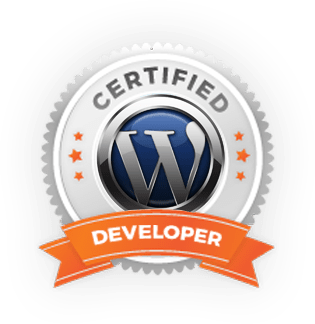In the dynamic landscape of today’s online world, understanding and implementing effective digital marketing strategies is crucial for any business aiming to thrive. Digital marketing encompasses a variety of tactics and channels, all designed to help you reach your target audience, engage them, and ultimately convert them into loyal customers.
From leveraging social media platforms to optimizing your website for search engines, the strategies you choose can significantly impact your brand’s visibility and customer engagement. The key is to develop an integrated approach that combines different channels and techniques, creating a cohesive and powerful marketing plan.
At SEON Experts, we specialize in crafting customized digital marketing strategies that align with your business goals. Our team of experts is dedicated to ensuring that your brand not only stands out but also achieves maximum ROI. Call us today at (817) 213-6090 or visit our contact page to learn more about how we can help you elevate your online presence.
Importance of Multi-Channel Strategies
In the realm of digital marketing, relying on a single channel is no longer sufficient. The importance of multi-channel strategies lies in their ability to create a seamless and cohesive customer experience across various platforms. By utilizing multiple channels, businesses can reach their audience where they are most active, whether it’s on social media, email, search engines, or other digital touchpoints.
Multi-channel strategies enable brands to engage with their customers at different stages of the buying journey. For example, a potential customer might first discover your brand through a social media ad, then visit your website for more information, and finally receive a personalized email that convinces them to make a purchase. Each channel plays a unique role in building awareness, nurturing leads, and driving conversions.
Moreover, a multi-channel approach provides valuable data and insights into customer behavior. By analyzing how users interact with different channels, businesses can refine their strategies to better meet the needs and preferences of their audience. This data-driven approach ensures that marketing efforts are not only effective but also efficient, maximizing ROI.
In summary, integrating multiple channels into your digital marketing strategy is essential for creating a comprehensive and effective marketing plan. It allows for greater reach, better engagement, and more personalized customer interactions, ultimately leading to higher conversion rates and sustained business growth.
Content Marketing for Engagement

Content marketing has evolved into one of the most powerful tools for driving engagement and building lasting relationships with your audience. By providing valuable, relevant, and consistent content, businesses can attract and retain a clearly defined audience, ultimately driving profitable customer actions.
The key to successful content marketing lies in understanding your audience’s needs and preferences. This involves creating a variety of content types, such as blog posts, infographics, videos, podcasts, and social media updates, tailored to address different pain points and interests. By doing so, you can position your brand as an authority in your industry and build trust with your target audience.
Engagement through content marketing doesn’t just stop at creating and sharing content. It also involves actively interacting with your audience. Responding to comments, asking for feedback, and encouraging user-generated content are all effective ways to foster a sense of community and keep your audience engaged. This two-way communication not only enhances customer loyalty but also provides valuable insights into what resonates with your audience.
Additionally, SEO plays a crucial role in content marketing. By optimizing your content with relevant keywords, including “digital marketing strategies“, you can improve your search engine rankings and drive organic traffic to your website. High-quality, SEO-optimized content ensures that your brand remains visible and accessible to potential customers searching for information related to your industry.
Incorporating content marketing into your digital marketing strategy is essential for boosting engagement and driving long-term success. By consistently delivering valuable content and actively engaging with your audience, you can create a loyal customer base and enhance your brand’s online presence.
Social Media Marketing Techniques

Social media platforms have transformed into powerful marketing channels that businesses can leverage to connect with their audience, build brand awareness, and drive conversions. To make the most out of social media marketing, it is crucial to employ effective techniques that resonate with your target audience and align with your business objectives.
First and foremost, understanding your audience is key. Each social media platform attracts different demographics, so it’s essential to tailor your content accordingly. Platforms like Instagram and TikTok are ideal for reaching younger audiences through visually appealing and short-form content, whereas LinkedIn is better suited for B2B marketing and professional networking.
One of the most effective social media marketing techniques is to create engaging and shareable content. This includes a mix of images, videos, stories, and live streams. High-quality visuals, compelling captions, and interactive elements such as polls and quizzes can significantly boost engagement rates. Additionally, leveraging user-generated content, such as customer testimonials and reviews, can enhance credibility and foster a sense of community.
Consistency is another crucial factor. Regular posting keeps your brand top-of-mind and helps maintain audience interest. A well-planned content calendar can ensure that you post consistently and at optimal times when your audience is most active. Utilizing social media management tools can streamline this process and provide valuable analytics to track performance.
Moreover, social media advertising offers targeted reach and measurable results. Platforms like Facebook and Instagram allow businesses to create ads tailored to specific demographics, behaviors, and interests. By investing in paid social media campaigns, you can amplify your reach, drive traffic to your website, and achieve higher conversion rates.
Finally, fostering two-way communication is essential. Responding to comments, messages, and mentions in a timely manner builds trust and demonstrates that you value your audience’s input. Hosting live Q&A sessions, running contests, and encouraging user interaction can also enhance engagement and create a loyal community around your brand.
By implementing these social media marketing techniques, businesses can effectively leverage the power of social platforms to enhance their digital marketing strategies, build a strong online presence, and achieve their marketing goals.
Search Engine Optimization Best Practices

In the ever-evolving landscape of digital marketing, Search Engine Optimization (SEO) remains a cornerstone for driving organic traffic and enhancing online visibility. Implementing SEO best practices can significantly improve your website’s ranking on search engine results pages (SERPs), leading to increased traffic and higher conversion rates.
One of the foundational elements of SEO is conducting thorough keyword research. Identifying the right keywords that your target audience is searching for enables you to create content that meets their needs and answers their queries. Use tools like Google Keyword Planner, Ahrefs, or SEMrush to find relevant keywords with a good balance of search volume and competition.
On-page SEO is another critical aspect. This involves optimizing individual web pages to rank higher and earn more relevant traffic. Key on-page elements include meta tags (title tags and meta descriptions), header tags (H1, H2, H3), and keyword-rich content. Ensuring that your content is both high-quality and relevant while being optimized for keywords can greatly enhance your SEO efforts. Additionally, incorporating internal links helps search engines understand the structure of your site and improves user navigation.
Technical SEO should not be overlooked. This includes optimizing your website’s speed, ensuring mobile-friendliness, and fixing any crawl errors or broken links. Tools like Google Search Console and PageSpeed Insights can help identify and rectify technical issues that may hinder your site’s performance.
Off-page SEO activities, such as building high-quality backlinks, also play a pivotal role. Backlinks from reputable sites signal to search engines that your content is valuable and trustworthy. Strategies to acquire backlinks include guest blogging, influencer outreach, and content marketing.
Content is king in the realm of SEO. Regularly updating your website with fresh, informative, and engaging content can attract more visitors and keep them on your site longer. This not only improves your search engine rankings but also enhances user experience. Utilizing a blog to publish articles on industry trends, how-to guides, and case studies can position your brand as an authority in your field.
Lastly, monitoring and analyzing your SEO performance is vital. Use analytics tools to track key metrics such as organic traffic, bounce rate, and conversion rates. Regularly reviewing these metrics allows you to adjust your strategies and improve your SEO efforts continuously.
By adhering to these SEO best practices, businesses can enhance their online visibility, drive more organic traffic, and ultimately achieve their digital marketing goals.
Data-Driven Marketing Insights

In today’s competitive digital landscape, harnessing the power of data-driven marketing is crucial for making informed decisions and driving business growth. By leveraging data analytics, businesses can gain valuable insights into customer behavior, preferences, and trends, enabling them to tailor their marketing strategies for maximum impact.
One of the primary benefits of data-driven marketing is the ability to create highly personalized and targeted campaigns. By analyzing customer data, such as demographics, purchase history, and online behavior, marketers can segment their audience and deliver customized messages that resonate with each group. This level of personalization not only enhances customer engagement but also boosts conversion rates.
Data-driven marketing also allows for more accurate measurement and optimization of marketing efforts. By tracking key performance metrics, such as click-through rates, conversion rates, and return on investment (ROI), businesses can identify which strategies are working and which need adjustment. Tools like Google Analytics, HubSpot, and Tableau provide in-depth insights that help marketers fine-tune their campaigns for better results.
Another significant advantage is the ability to predict future trends and customer needs. Predictive analytics uses historical data to forecast future behavior, enabling businesses to stay ahead of the curve and proactively address customer demands. This can lead to more effective product launches, improved customer retention, and a stronger competitive edge.
Furthermore, data-driven marketing fosters a culture of continuous improvement. By regularly analyzing data and gathering feedback, businesses can make iterative changes to their strategies, ensuring they remain relevant and effective. This approach not only maximizes marketing ROI but also drives sustainable growth over time.
Embracing data-driven marketing requires a robust data infrastructure and the right analytical tools. Investing in customer relationship management (CRM) systems, data management platforms (DMPs), and marketing automation tools can streamline data collection, analysis, and application. Additionally, having a skilled team capable of interpreting data and deriving actionable insights is essential for success.
At SEON Experts, we specialize in leveraging data-driven marketing to help businesses achieve their goals. Our team of experts uses cutting-edge tools and techniques to provide actionable insights that drive results. Call us today at (817) 213-6090 to learn how we can elevate your marketing strategy with data-driven insights.






